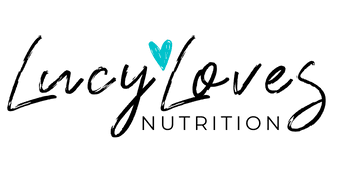Due to the challenges of our current economic climate, and with the costs of running a business seeming to increase by the minute, employers cannot afford to lose money due to poor employee health and wellbeing.
And yet they are – for example, data published by Deloitte (2022) found that poor mental health alone costs UK businesses the shocking figure of £56 billion per year.
Coupled with the annual £16.2 billion cost of work-related ill health, and the loss of nearly 39 million working days per annum, many employers are struggling to cope with the financial impact of poor health in their organisation.
And even if your employees do come to work when they are unwell, this comes at a great cost to their overall health.

In fact, due to the loss of productivity and the increased time needed to recover from injury and illness, the cost of presenteeism may be even greater than absenteeism, with statistics from the Centre For Mental Health showing that presenteeism costs the UK economy £15.1 billion per year, in contrast to just £8.1 billion for absenteeism.
Therefore, with the potential costs being so great, all employers should consider the financial impact that poor employee health could have on their business and formulate a corporate wellness strategy to promote physical and mental wellbeing.
The Relationship Between Nutrition and Immunity
Nutrition (and the associated lifestyle factors) plays a major role in our immune function in numerous ways. Firstly, let’s understand how our immune system fights infection.
Our bodies need certain nutrients to be able to produce immune cells, also known as white blood cells.
These cells fight disease by seeking out infective viruses and bacteria in the body, capturing them, and destroying them within the cell walls. To be able to make these cells, our bodies need adequate amounts of vitamins C and D, the macronutrient protein, and the minerals selenium, zinc, and iron.
Another core mechanism involved in fighting infection is the gut microbiome.
The microbiome is a large colony of microbes that live in multiple systems around the body, but predominantly in the intestines. Some of these microbes break down fibres from fruits, vegetables, grains, and legumes into short-chain fatty acids, which have been proven to promote immune cell activity.
Foods that contain the helpful microbes necessary for good gut function are known as probiotics, and they include fermented foods such as kimchi, sauerkraut, yoghurt, kefir and miso, while foods that feed and maintain these colonies are known as prebiotics, and they include a wide variety of fibrous fruits, vegetables, grains, and legumes.
Immune function is also closely related to levels of inflammation.
The inflammatory response is another mechanism that your body uses to fight infection. When your tissues are damaged due to an infection, the affected cells release a number of chemicals – including histamine, bradykinin, and prostaglandins – to help fight the disease.
However, if the inflammation becomes chronic or long-term, it can lead to several health issues such as inflammatory arthritis, heart disease, diabetes, inflammatory bowel disease, asthma, cancer, and even mental health conditions.
Diets that are high in processed foods and low in nutrients cause the body to be less able to produce white blood cells, reducing its ability to fight infections. These diets are also associated with higher levels of inflammation – particularly inflammation of the gut – resulting in a suppressed immune system. This puts the individual at a higher risk of developing infections and chronic physical and mental health conditions.
The Gut-Brain Connection



For decades, scientists have known that functional mental health conditions such as anxiety and depression can cause gut issues including IBS, constipation, diarrhoea, and stomach pain. But recent research indicates that gut issues may also contribute to anxiety and depression.
This is due to the Enteric Nervous System (ENS), which is comprised of two layers of over 100 million nerve cells found across the digestive tract – starting from the oesophagus, all the way through the stomach and intestines, and down to the rectum.
As we may expect, these cells control blood flow to the gut and the secretion and transportation of mucus, but surprisingly, they also play a large role in immune function, endocrine (hormone) functions, and even motor activity.
As a result, if the ENS detects an imbalance in the gut microbiome, it sends out signals to the body to release hormones or stimulate brain activity that communicates poor gut health; this can result in feelings of sickness, mood fluctuations, anxiety, and poor sleeping patterns.
Some research even indicates that gut function may be connected to cognitive function, which includes thinking skills and memory – thereby making a healthy digestive system essential for the prevention and treatment of mental health conditions, and for encouraging sharp cognitive skills in the workplace.
Nutrition and Energy
Good nutrition is also essential for maintaining high energy levels and concentration. Complex carbohydrates – such as those found in high-fibre whole grains, fruits, and vegetables – release energy slowly throughout the day, resulting in stable energy levels and increased concentration ability.
However, in the modern diet, many people rely too heavily on the simple carbohydrates found in processed foods. This can result in a sudden drop in blood sugar, causing the ‘mid-afternoon slump’ that leaves many employees feeling lethargic and unable to focus.
As such, promoting complex carbohydrates as a source of energy may help to boost employee motivation and vitality, keeping them fuelled and productive throughout the day.
The Benefits of Good Nutrition for Employees and Employers

As discussed, the promotion of good nutritional habits in the workplace can offer multiple benefits for employees, including:
- Improved immunity against disease
- Reduced risk of chronic physical and mental health conditions
- Reduction of mental health symptoms
- More stable mood
- Improved cognitive function
- Lower stress levels
- Improved energy levels
- Better sleep patterns
For employers, this can offer many benefits, such as:
- Reduced staff absenteeism
- Improved health in the workplace
- Increased productivity
- Lower levels of stress in the workplace, resulting in improved working relationships
- Reduction of communicable diseases
- Improved staff retention
- Improved staff morale
Starting the Conversation Around Corporate Wellness
There are many ways that employers can integrate nutritional support into their workplace training programmes. But if you’ve never addressed the topic of nutrition in your workplace before, you may be unsure of how and where to start.
Firstly, be aware that not everybody may be comfortable discussing their nutritional habits in a group, due to issues such as social stigma or eating disorders. Discussions around nutrition should always be conducted in a supportive and non-judgemental atmosphere, with awareness of any influencing mental health or lifestyle factors.
You may find that it is more effective to initially approach the subject in 1-to-1 supervision sessions with individual employees before addressing it with the team as a whole. This also allows you to discreetly recommend sessions with a nutritional therapist or other professional, wherever required. When you have built up a trusting relationship among your team, you can then begin to consider discussing nutrition in groups, or commissioning a workshop with a nutrition professional. For example, there are a range of seminars, workshops, and online courses available that can easily be incorporated into corporate training programmes, and these can often be engaging and stimulating topics for employees.
You may also find that an informal chat via email or social media may be an excellent resource for your employees. This will allow your team members to drop in or out as they feel comfortable, and you will be able to share helpful resources with them that complement the atmosphere of your workplace – such as healthy and quick recipes, advice on packing healthy lunches, and which fluids to drink to ensure adequate hydration.
Lucy Loves Nutrition: How I Can Help With Corporate Wellness
Lucy Loves Nutrition delivers nutritional wellness talks, webinars, and 1-to-1 consultations with employees and employers in Cornwall and online.
I provide a comprehensive range of interactive sessions to help your employees develop and maintain high levels of health and wellbeing, which are available in virtual or face-to-face formats.
My 1-to-1 consultations will help your employees develop an actionable health plan by targeting specific health concerns, and will empower them to make sustainable, lasting changes to their lifestyles. This allows employers to benefit from having a healthier, better motivated, and more productive team.
I can also provide inspiring content for your company intranet system, social media accounts, and website blog, alongside newsletters and mailshots on topics that will encourage your team to benefit both themselves and your business by pursuing a healthier lifestyle.
